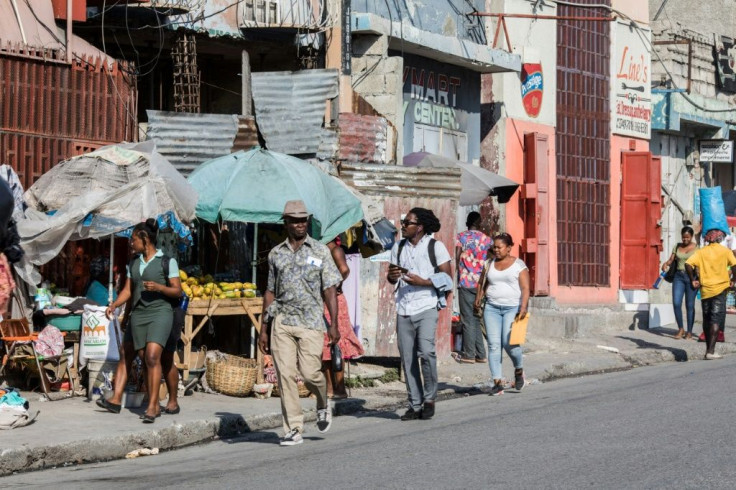Haiti Postpones June 27 Referendum, Citing Covid
Haiti on Monday postponed a constitutional referendum scheduled for June 27 citing the coronavirus pandemic, but did not give a new date for the vote in the latest twist in its political crisis.
President Jovenel Moise has been ruling Haiti, the poorest country in the Americas, by decree after legislative elections due in 2018 were delayed and following disputes on when his own term ends.
In addition to presidential, legislative and local elections set for September, Moise had wanted to submit a new draft of the island nation's constitution to a popular vote on June 27.
Last month he had vowed to go ahead despite international criticism that the process is not "inclusive, participatory or transparent" enough in a country plagued by political insecurity and criminal gangs.
But on Monday an official statement said the decision to postpone was motivated by "difficulties" the electoral council faced as it tries "to assemble and train all the temporary staff" for the poll in the face of the pandemic.
A new date would be set "after the recommendations of the health authorities and the technical advice of the executives of the electoral institution," it said.
On May 24 Haiti declared a state of health emergency due to the increase in cases of Covid-19.
But opposition lawmaker Jerry Tardieu said it was "pretext to evoke the coronavirus," adding that the referendum itself was "unconstitutional and illegal."

Some government critics accused the electoral council of misappropriating public funds, noting that money had already been released for training.
"I think it's a money laundering operation: they knew they weren't going to do it, but the money was released last Thursday," former senator Youri Latortue said in an interview with AFP on Monday.
"All those who wasted public funds in this flawed process, despite the warnings ... are liable to be tried for embezzlement," said Reginald Boulos, a businessman who recently entered politics.
Organizing the vote had already appeared complicated thanks to growing insecurity.
Over the weekend, clashes between two gangs in a poor neighorhood in densely populated Port-au-Prince forced hundreds of residents to flee their homes, taking refuge in nearby churches and gymnasiums.
The troubled neighborhood, only lightly patrolled by police even though it is within a few hundred meters of the presidential palace, is now largely controlled by armed criminals who regularly battle for control.
With a major highway passing through it, the violence complicated access to southern Haiti, and the United Nations expressed "profound concern" while speaking of "numerous deaths".
Moise, who faces anger and demands he resign amid the government's failure to rein in criminal violence, is on his sixth prime minister in four years.
In addition to the political crisis, kidnappings for ransom have surged in recent months, further reflecting the growing influence of armed gangs in the Caribbean nation.
It also faces chronic poverty and recurrent natural disasters.
© Copyright AFP 2024. All rights reserved.





















